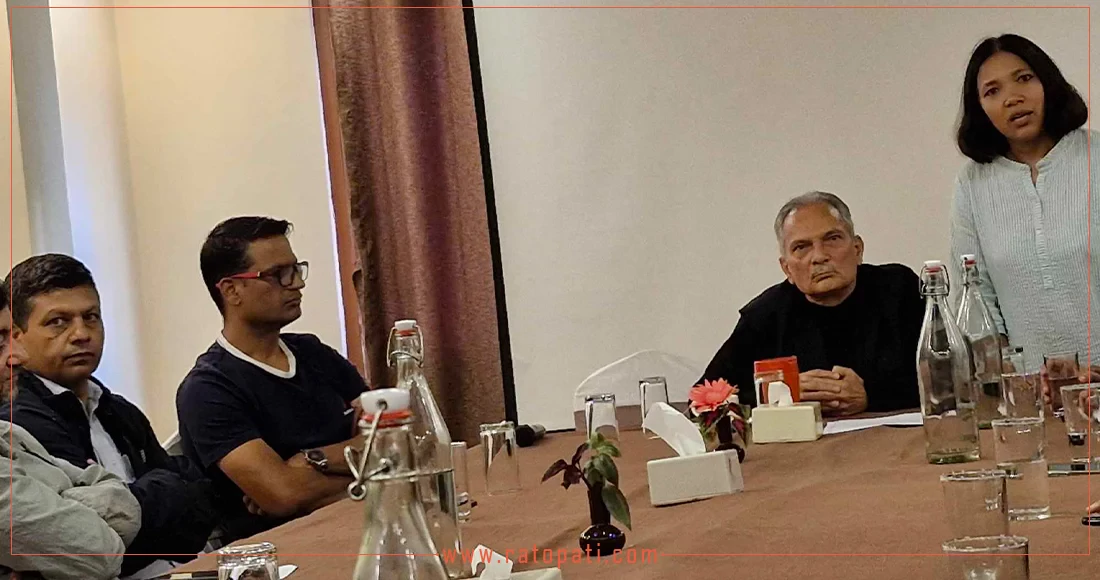Bhattarai questions Balen Shah's true identity amid political speculation

Kathmandu, October 26 — Dr. Baburam Bhattarai, former Prime Minister and Chairman of the Nepal Samajwadi Party (Naya Shakti), has expressed doubts regarding Balen Shah, the Mayor of Kathmandu Metropolitan City. Despite ongoing speculation that Balen may establish a political party ahead of the upcoming elections in 2027, Bhattarai admits he struggles to grasp the true nature of Balen's popularity.
“I have yet to understand who Balen really is. He appears to be a rather enigmatic figure,” Bhattarai remarked during a discussion with editors and journalists of major media outlets in the capital on Saturday. “While his image is prominent on trucks and he enjoys considerable popularity on social media, in the context of our complex geopolitical landscape, a lack of clarity regarding his true intentions could prove perilous.”
Nonetheless, Bhattarai asserts that the country needs forward-thinking alternative forces. He emphasized his longstanding positive stance towards such entities and expressed his desire to collaborate or form alliances with them in the upcoming elections.
He noted that certain achievements gained through the people’s war and movements have yet to be institutionalized, advocating for unity among progressive forces to safeguard these accomplishments. However, he remained skeptical that any single alternative force could command a majority in the forthcoming elections, suggesting, “I believe that forming alliances or coalitions is essential. We must set an agenda to establish alternative politics and consider coalitions around it.”
Regarding the diminishing power of the CPN (UML) and Nepali Congress post-2027, Bhattarai analyzed that alternative forces would challenge their dominance. However, he acknowledged that it is premature to ascertain what constitutes an alternative force at this juncture, stating, “This space remains unoccupied. An ‘unknown’ figure may emerge.”
Recalling his past attempts to forge an alternative force after departing from the Maoists, Bhattarai reflected on how the impatience of his own associates hindered success at that time. He noted several challenges, including a lack of cooperation from the then-government, which denied electoral symbols. “Even Prachanda did not offer assistance; his government failed to provide election symbols. This led to internal divisions just before elections,” he lamented. Learning from past mistakes, he now seeks to rebrand his party and advocate for alternative politics, making it clear that he has no intentions of aligning with royalist ideologies.
“Royalism is absolutely out of the question. We must strive to establish an alternative force within the framework of a republic,” he asserted. Bhattarai further argued that the Congress, UML, and Maoist parties would struggle to maintain significant individual influence in the face of an emerging alternative force, advocating for a progressive democratic ideology that encompasses all.
On the prospect of unity with the Maoists, he deemed it unlikely, stating, “Prachanda has moved too far ahead. We might find common ground on certain issues.”
Highlighting corruption as a primary challenge of the current era, he called for the establishment of a Lokpal or a robust independent commission to address it, warning that if corrupt individuals were appointed to such bodies, solutions would remain elusive. He further advocated for a system that could yield a majority, supporting direct executive leadership.
Bhattarai also expressed concerns regarding the activities of former King Gyanendra, deeming them suspicious, and raised questions about his recent trip to Bhutan. He insinuated that some current political leaders may also be acting in ways that raise eyebrows.










Leave Comment